One thing we as adults are invariably asked is, “What do you wish you could tell your younger self?”. Mr Goh Seng Wee (Engineering ’03) knows what he would say. It is the same piece of advice the 38 year-old gives to young NUS alumni whenever they ask him that question: “Sooner or later, you will need help for all sorts of scenarios — to change careers, to start a business, or to move to a new city. Having trusted friends across industries, specialisations and countries is all the more important in today’s ultraconnected world. NUS is an excellent place to build such friendships.”
The global community of NUS alumni is, in some respects, similar to the concept of kongsi , which originally referred to an overseas Chinese clan organisation but now means “company” in the commercial sense. Like a clan, the alumni community shares a common background — in this case, the same alma mater rather than surname. And in the same way many kongsi members partnered up to form commercial enterprises and transformed these into huge conglomerates, NUS alumni also embody a spirit of cooperation and togetherness in their relationships with one another.
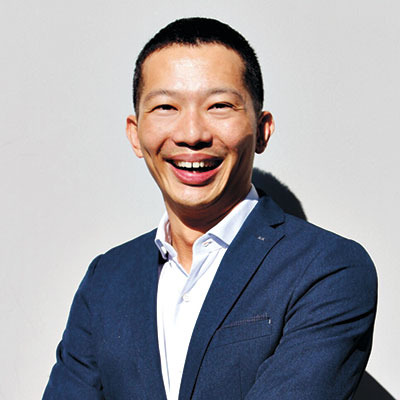
Having trusted friends across industries, specialisations and countries is all the more important in today’s ultraconnected world.
Mr Goh Seng Wee (Engineering ’03)
At the heart of this “NUS kongsi ”, so to speak, is a keenness to achieve mutual benefits, whether in an individual’s professional, personal or charitable endeavours. The University’s alumni groups — old and new, formal and informal, online and offline, local and overseas — are as numerous as they are diverse; and the group members, bold and resourceful in leveraging on their alumni networks.
HELLO, WORKING WORLD
A Public Service Commission Scholarship recipient, Mr Goh was initially “single-minded” in wanting to focus on his studies at NUS. Bit by bit, his involvement in campus life grew, from being a floor representative at Temasek Hall to joining the NUS Students’ Union (NUSSU) Business Committee, chairing the Freshmen Orientation Central Committee and serving as Rag & Flag Project Director. In his final year, Mr Goh was elected as President of the NUSSU Executive Committee (EXCO) — a distinctive experience that permanently bonds him with past and future Presidents.
Today, he is in a WhatsApp group with former NUSSU EXCO Presidents from as far back as 1999/2000, and the group grows every year with the addition of immediate past Presidents. He also enjoys meeting alumni across all batches at alumni events. “Over the years, I learnt to appreciate the much larger alumni community and the vast networks that can be tapped on,” says Mr Goh, who recently started a venture capital (VC) firm and sought advice from senior alumni on VC fund formation. “We are all at different stages in our lives, but whenever our paths cross, it can be very enriching.”
It could be argued that Master of Business Administration (MBA) graduates are, as professional networkers, particularly adept at utilising their alumni connections to build business relationships (guanxi). “A key strength of the NUS MBA is not only the courses offered, but the networks it grants you access to,” says Mr Abhinav Charan (Business ’10). He was part of the inaugural cohort of the S3 Asia MBA, a double degree programme comprising three semesters each in a different city: Shanghai, Seoul and Singapore.
While at NUS, Mr Charan actively promoted student–alumni interaction as part of the NUS MBA Alumni Relations Team, and continues to do so now as Co-opted Director of MBA Alumni – NUS. His role entails organising social events such as afterwork drinks and movie screenings to enhance engagement between alumni across different NUS MBA programmes and cohorts, as well as with existing students. He also acts as a liaison between NUS MBA alumni looking to fill job vacancies and suitable candidates from within the alumni association.
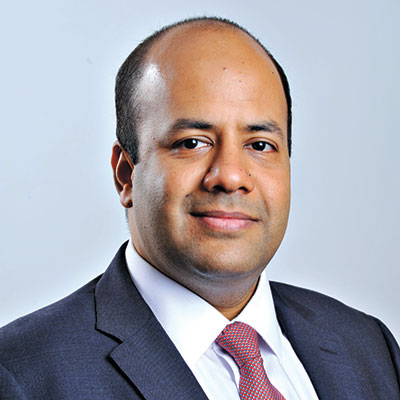
A key strength of the NUS MBA is not only the courses offered, but the networks it grants you access to.
Mr Abhinav Charan (Business ’10)
“Alumni often meet up to explore business opportunities or to exchange notes on what’s happening in the industry,” says Mr Charan, 35. Now covering the Asia-Pacific market for a global wealth and asset management firm headquartered in India, the financial services professional has himself benefited from his degree programme’s region-wide reach. “I help institutional investors mainly in Singapore and Korea access India investments. Through the S3 Asia MBA alumni community based in Seoul, I have developed a thriving network of contacts in Korean financial institutions.”
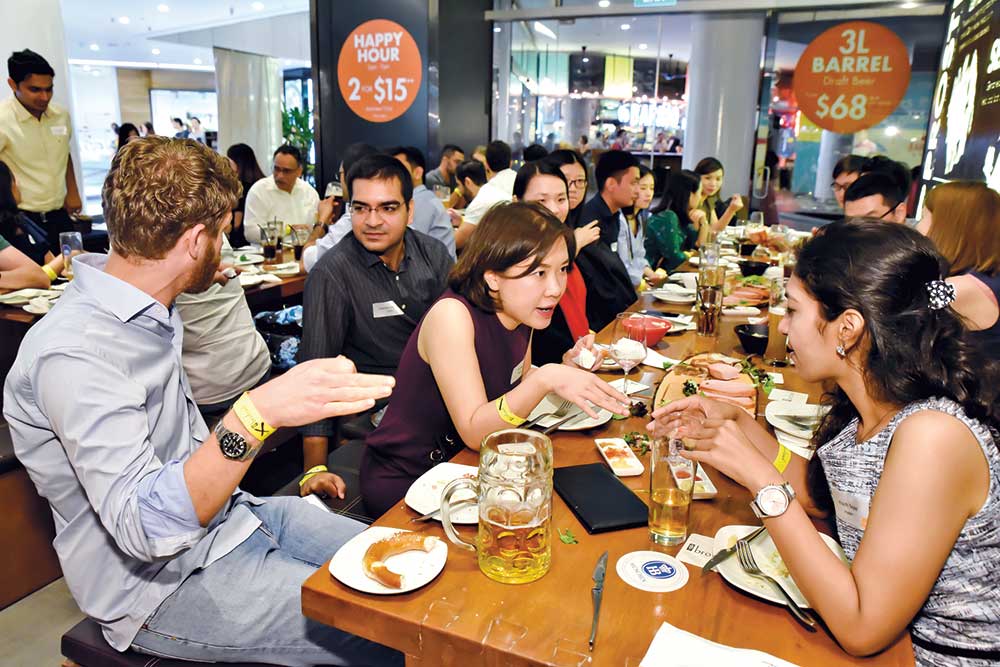 MBA alumni catching up over drinks at Brotzeit, VivoCity.
MBA alumni catching up over drinks at Brotzeit, VivoCity.
FINDING A COMMON SENSE
Of course, the pursuit of career advancement is a big factor motivating people to stay connected to their alumni community, be it through faculty-, hall- or interest-based groups. Another is the desire to meet like-minded people and to do something fun and meaningful together. For Ms Airani Ramli (Science ’96), her passion for environmental conservation was what led her to join NUS Toddycats! in 2000.
NUS Toddycats! is made up of volunteers with the NUS Lee Kong Chian Natural History Museum (LKCNHM), and is open to NUS students and alumni as well as the general public. Members engage in an array of public education activities including guided tours of LKCNHM, guided walks on nature and heritage trails around Singapore, coastal cleanups and public seminars on Singapore’s biodiversity. “Through our shared love for nature and the environment, we have formed friendships that transcend age, race, religion and everything else,” says Ms Airani.
Sports is another area that brings together alumni from different batches and faculties. Mr Yeo Yunhan (Engineering ’15), an avid badminton player, is the founding Chairperson of NUS Alumni Badminton. He created the alumni group last August, upon learning that none had existed prior to that for badminton enthusiasts.
The group currently has over 200 members; to attract more, they rely on a combination of channels including their Meetup.com website, participation in alumni events and word of mouth. Badminton sessions are organised once a month, usually on campus grounds, and the players often go out for a meal together after that. “Every time we go to NUS, it feels like going back home,” notes Mr Yeo, 27.
Besides satiating his love for badminton, the group also allows him to maintain the friendships forged as an undergraduate and make new friends. “One of our oldest members graduated in 1985, before I was born! I like listening to his stories about how NUS has changed over the years,” says Mr Yeo. ”By hearing about how these ‘uncles’ and ‘aunties’ succeeded in their careers and family lives, we can take inspiration from their experiences.”
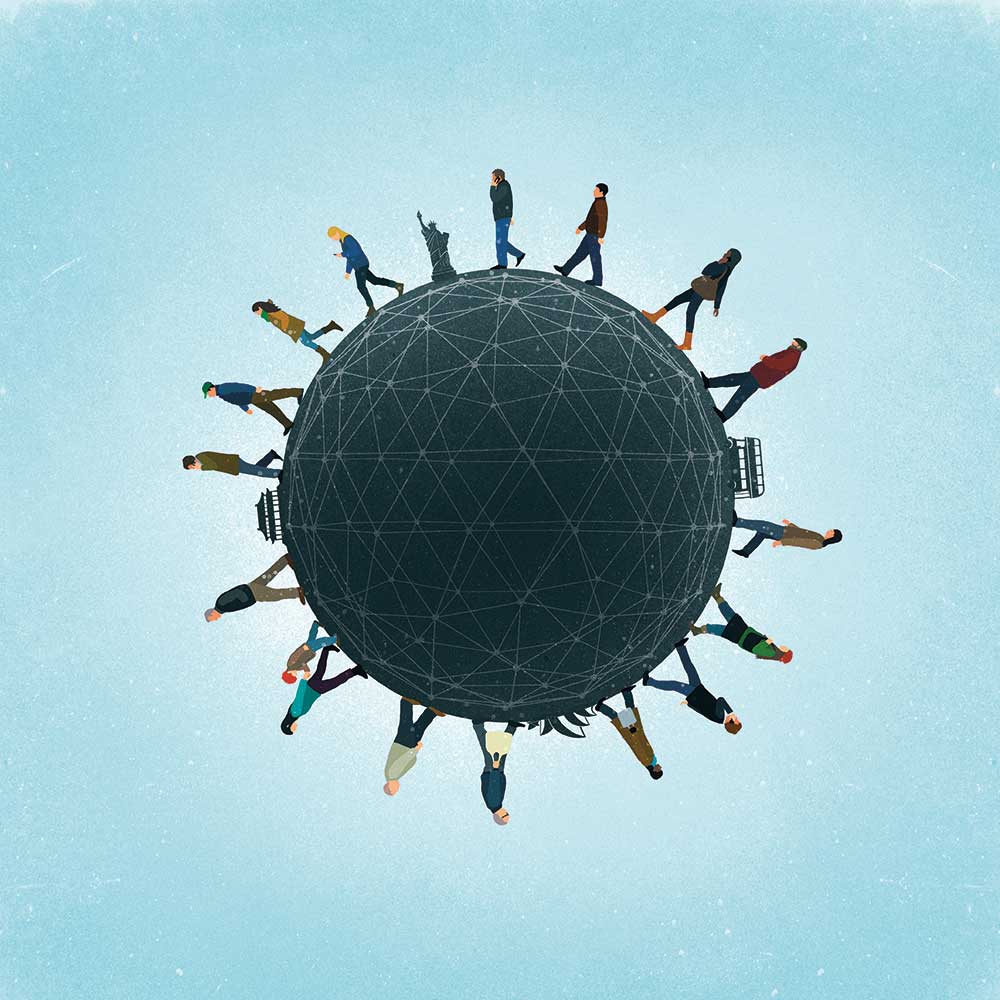
GLOBAL CAMARADERIE
In reaching out to fellow alumni based in Korea for help in expanding his business contacts there, Mr Charan highlights a crucial facet of the NUS alumni community: it spans the globe, from neighbouring ASEAN countries to far-flung parts of Europe and North America. “No matter where you are, the chemistry and closeness you have with other alumni is unique,” says Dr Sharon Heng (Medicine ’08), Chairperson of the NUS Alumni London Chapter, on the “instant” camaraderie felt among NUS graduates. “There is a level of trust there that may not be present in your other friendships.”
When Dr Heng, an ophthalmologist, moved to London eight years ago to pursue her PhD, she found support in long-time residents from the NUS Alumni London Chapter. “Moving to a new country is a life-changing experience. Having a support team you feel comfortable with is very heartwarming,” she says. To help newcomers in London settle down, the group members provide all sorts of useful information such as how the healthcare system works and suggestions to improve their public speaking skills.
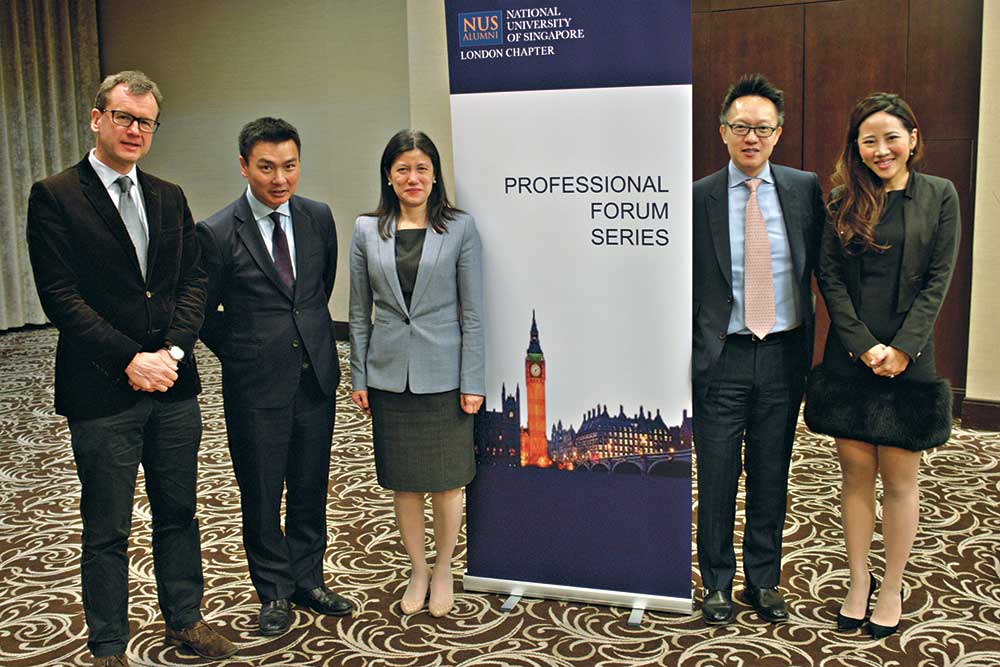 Dr Heng (far right) with invited panellists at the second Professional Forum in November 2017
Dr Heng (far right) with invited panellists at the second Professional Forum in November 2017
Dr Heng was appointed Chairperson of the London Chapter in September 2017, which coincided with a change in direction for the 18 year-old group. Social gatherings are still held every few months, but with more high-level professionals now joining the group, there has been a push in recent years to cater programmes to them. Last March, the Professional Forum series was launched; these forums allow participants to hear from distinguished speakers on global issues, as well as engage in networking. “We hope to build on this series, organise more events and create a stronger networking platform,” explains Dr Heng, 33. She also hopes to link up with other overseas alumni chapters, whether simply to extend a warm welcome to those holidaying in London or to collaborate on events for professionals.
One alumni chapter that is in the process of being set up is in Hanoi, Vietnam. Mdm Nguyen Thi Bich (Public Policy ’03) is leading this cross-faculty effort, having headed the NUS Lee Kuan Yew School of Public Policy (LKYSPP) Vietnam Alumni Chapter from 2013 to 2016. Vietnam-based alumni of LKYSPP take part in a wide range of activities, including policy dialogues, weekly group bicycle rides and sharing sessions for incoming LKYSPP students from Vietnam.
“Singaporean diplomats are often invited to our policy dialogues, which double up as networking events. Through the Chapter, LKYSPP graduates in Hanoi and Ho Chi Minh City also get to stay in touch, and some of us have flown to attend members’ weddings in either city,” says Mdm Bich, 59, who holds a Master in Public Management from LKYSPP. She is “excited” about getting to know compatriots from other NUS Schools and enlarging her alumni network in Vietnam.
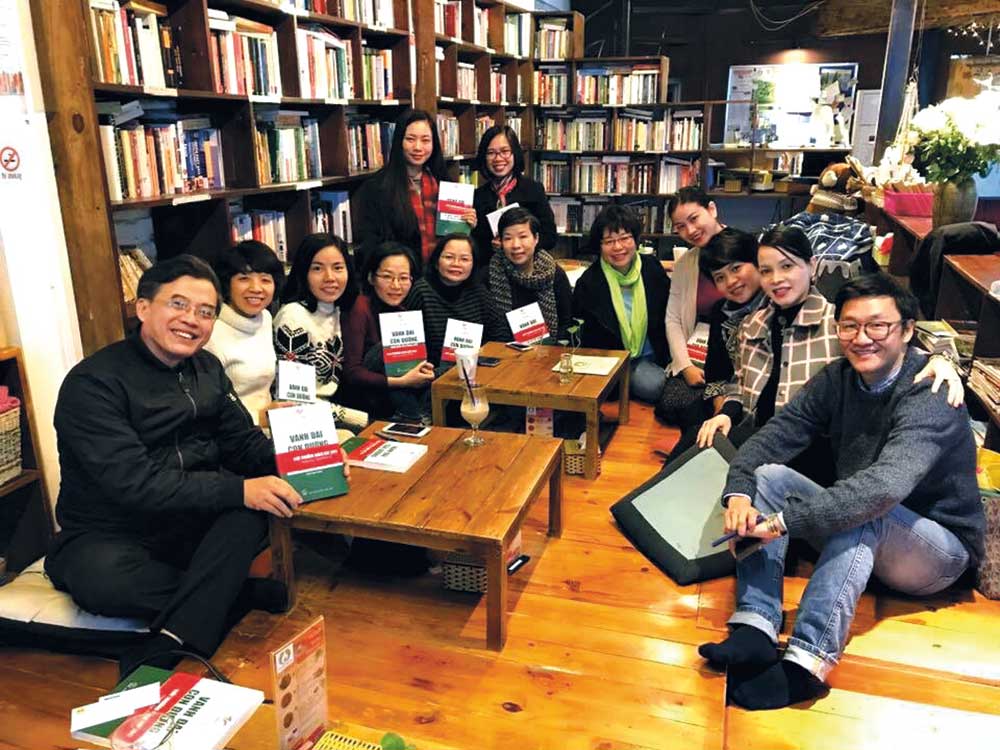 Ms Bich (seated, 5th from left) with friends from the LKYSPP Vietnam Alumni Chapter
Ms Bich (seated, 5th from left) with friends from the LKYSPP Vietnam Alumni Chapter
A GIVING SPIRIT
Giving back to society is a central tenet that the University seeks to convey to its students — and here again, the alumni community has a big part to play. Some are involved in ad hoc charity projects; for example, Mr An Li Shin (Business ’06), a local MBA graduate, tapped on his alumni network to raise money for poor communities in Vietnam and Cambodia. Then there are people like Mr Seah Cheng San (Engineering ’82), who spends much of his time in retirement raising funds to benefit needy students at NUS.
Having come from a humble background, Mr Seah received a Singapore Armed Forces scholarship to study at NUS. His tertiary education — including a return to NUS in the late 1980s/early 1990s to obtain an MBA — laid the foundation for a successful career with the SAF and in the corporate sector. While staying at Dunearn Road Hostels/Sheares Hall (DRH/SH), he also met his wife, Ms Chong Siak Ching (Design and Environment ’81), and made firm friendships. As such, giving back is a cause very dear to Mr Seah’s heart.
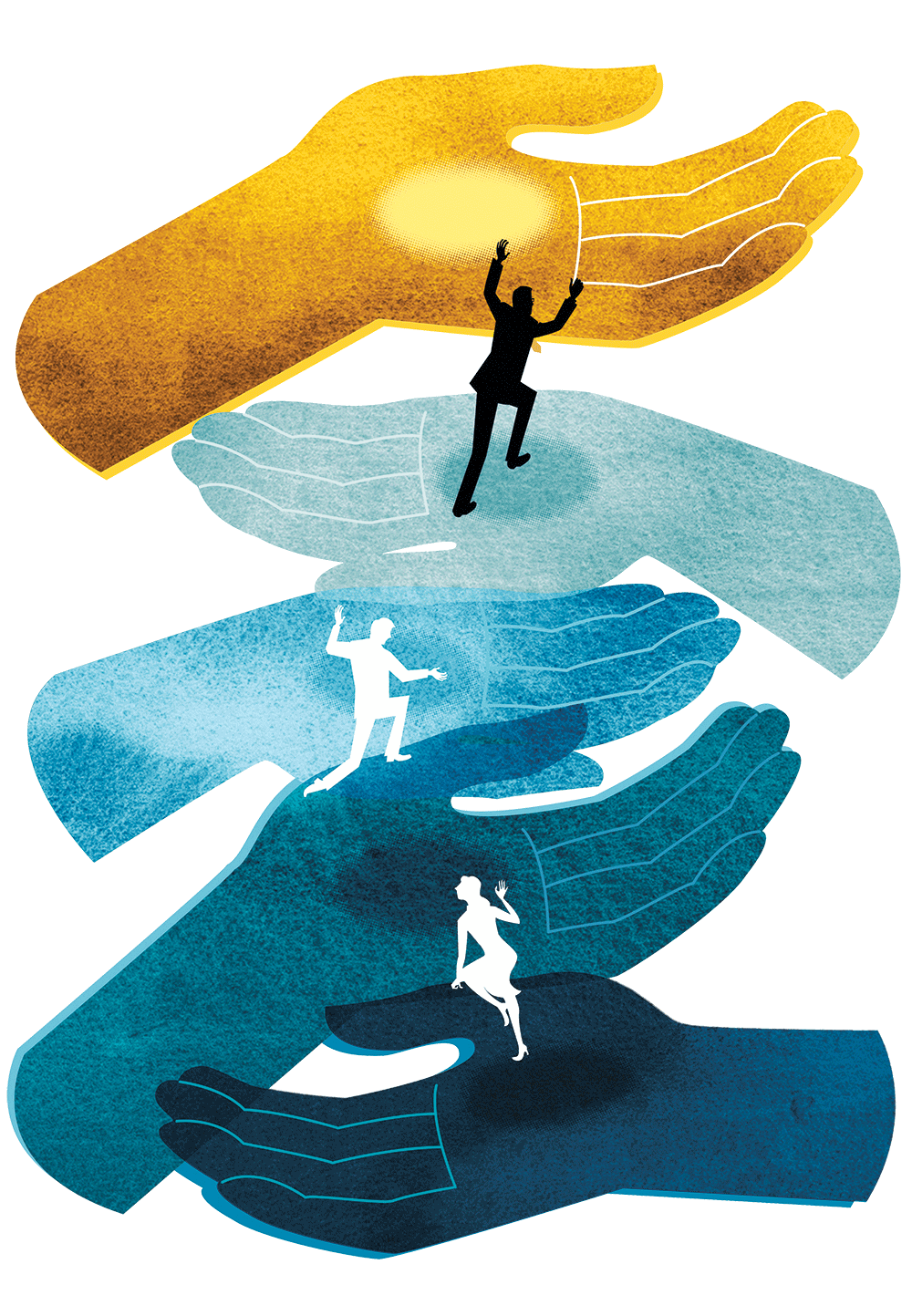
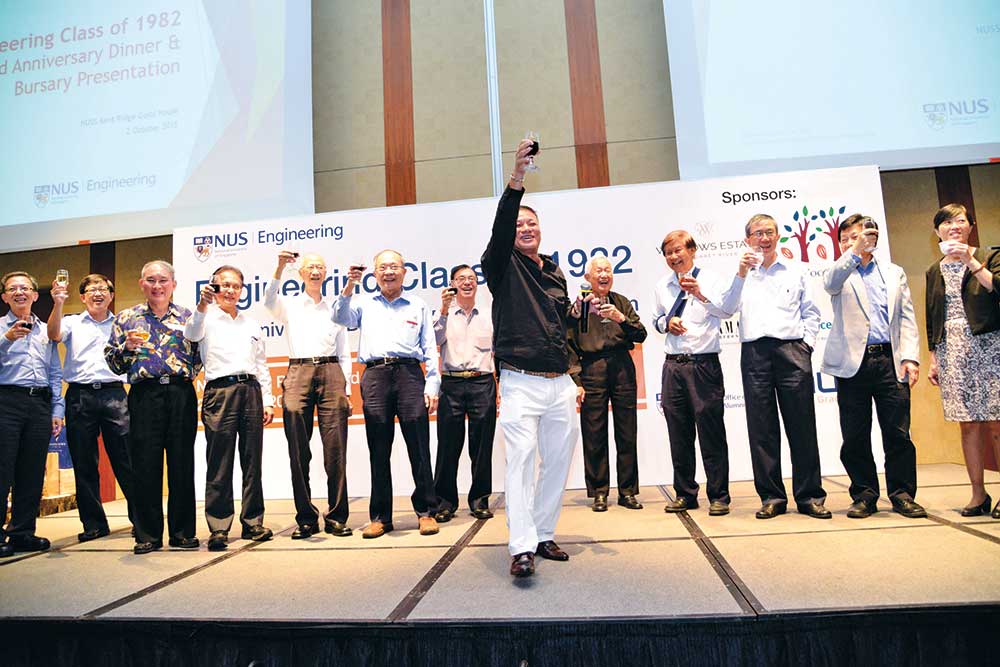 Mr Seah (far left) at an anniversary-cum-bursary presentation dinner for the Engineering Class of ‘82 Bursary Endowed Fund.
Mr Seah (far left) at an anniversary-cum-bursary presentation dinner for the Engineering Class of ‘82 Bursary Endowed Fund.
In 2009, Mr Seah initiated the DRH/SH Alumni Endowment Fund and the Engineering Class of ’82 Bursary Endowed Fund. These benefit needy students who are either Sheares Hall hostelites or NUS Engineering undergraduates. As one of four volunteer members of the NUS Alumni Students’ Advancement Committee (ASAC), set up by the NUS Alumni Advisory Board in 2013, he assists alumni across all halls and faculties with their own fundraising initiatives, under the NUS Alumni Bursary Fund (ABF) Campaign umbrella.
“Some volunteers may be reluctant to champion the establishment of a bursary fund because raising the requisite amount of contributions can be difficult. There is a lot of work that goes on behind the scenes before potential donors are approached, like tracking the market to find out which graduates have done well,” says Mr Seah, 61. “At ASAC, the four of us have the experience and contacts to guide others in structuring funds, getting seed money, and organising fundraising dinners and golf events.”
Email and social media platforms have made the task of soliciting donations much easier, he adds. “Through WhatsApp groups and Facebook crowdfunding campaigns, we can reach out to more people beyond our immediate contacts. And the bigger the alumni network we rely on, the more donations we are likely to get.”
PUNCHING ABOVE OUR WEIGHT
On this evidence, the community spirit among NUS alumni is alive and well. Individuals tap on their alumni networks for various motives, and via different platforms. But can more be done to create a bigger, closer community?
Ms Airani reasons, “Not everyone has the luxury of time or circumstance to be actively involved. The important thing is that alumni know they belong, and that they can participate or contribute at any time.” Once they experience the benefits of such networks, they will hopefully remain part of the “NUS kongsi ” for the long haul. As Mr Charan points out, “We need to let go of networking for the short-term goal of landing that first job. To progress in our careers, we will need a second or third job. The alumni network can be a priceless starting point.”
Sharing what — and who — one knows with fellow alumni may also lead to powerful synergies across functions and locations, thus raising the already-high calibre of NUS graduates and further elevating the University’s global reputation. So if anyone is wondering how best to show pride for their alma mater, here’s your answer: build ties and leverage on each other’s talent. You can do far more together than you can do alone.
OPEN ARMS
Mdm Joyce Chao, 80, did not graduate from NUS, but that does not matter one bit to her friends in the NUS Senior Alumni group. Their support has been a godsend to Mdm Chao, who lost her husband Prof Chao Tzee Cheng, former Clinical Professor of Forensic Pathology at NUS, in 2000, as well as her son Dr Alexandre Chao (Medicine ’89), a vascular surgeon who died during the 2003 severe acute respiratory syndrome (SARS) outbreak.